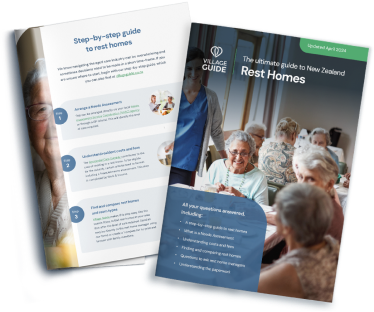Understanding dementia care in New Zealand
What is dementia care?
Dementia care refers to specialised support for people living with memory loss, confusion,
and other symptoms of dementia related conditions, including
Alzheimer’s disease.
Care homes that offer Dementia level care are designed to offer:
What is dementia?
Dementia is an umbrella term used to describe a range of symptoms that affect how the brain works. These symptoms can include memory loss, confusion, difficulty concentrating, and changes in behaviour or personality.
The most common form of dementia is Alzheimer’s disease, though there are several other types.
Dementia is a progressive condition, which means it tends to get worse over time. In the early stages, symptoms may be mild, but they often become more noticeable as the condition advances.
Because dementia affects people in different ways, not everyone with a diagnosis will need dementia level care right away. Care needs depend on the individual and how their symptoms develop.

Find dementia rest homes near you
Search our directory of dementia rest homes to find the right option for your family.
When is dementia care needed?
Every journey with dementia is unique, and recognising when it’s time for extra support can be
challenging. Some common signs that professional dementia care may be needed include:
- Frequent confusion or disorientation
- Increased wandering or safety concerns
- Difficulty with everyday tasks like eating, dressing, or hygiene
- Caregiver stress, fatigue, or burnout.
If you're noticing any of these signs, it may be time to explore care options. Moving into a rest home can often improve wellbeing, not only for the person living with dementia but also for their whānau and caregivers.
Residents with early stage dementia symptoms may not require specialised dementia level care. Instead, they might be fine living in a care home at rest home level care. However, it is important to consider future needs and whether a move might be required if symptoms progress and the facility you've chosen does not offer specialised dementia support.
Needs assessments
Before you can access care and support, you’ll need a Needs Assessment to determine the level of care required. This is arranged through your local NASC service and is the first step in the process.
Click below to find out what a Needs Assessment involves and how to get started.
Learn moreChoosing the right dementia care provider
Every family is different, and so is every care home. A good dementia care provider will work closely with the resident’s whānau to create a personalised resident care plan, one that reflects the resident’s unique preferences, personality, and background. Here are a few things to consider:
Are staff specially trained in dementia care?
What safety measures are in place?
3 How does the home support family visits and involvement?
Is there access to outdoor space and daily activities?
Family involvement is encouraged, with regular communication and input to ensure the care plan evolves alongside the resident’s changing needs. Find out more about care plans and how they work.
Costs and financial support
Dementia care is often funded through a combination of government subsidies and private payment. In New Zealand. Costs can vary depending on the level of care needed, the care facility and the type of room you choose.
Residential care subsidy
Some residents may qualify for a Residential Care Subsidy through Work and Income.
The subsidy is government funding towards the cost of rest home care. It is means tested and depends on a resident’s income and assets. The amount is the difference between how much an applicant must contribute towards their care (based on an asset and income assessment) and how much the care costs (according to Health NZ).
Maximum contribution and the ‘top up subsidy’
The maximum contribution is the upper limit that rest homes can charge for rest home level care services.This amount is set annually and varies by location.
If a resident requires a higher level of care, such as dementia level care, the additional cost beyond the maximum contribution is covered by a ‘top-up’ subsidy. This subsidy is funded by Health NZ and is available to all residents, regardless of whether they receive a government subsidy or are paying privately and is paid directly to the care provider.

Learn more about the Residential Care Subsidy and the Maximum Contribution.
Log in to Village Guide
Save villages to your favourites and update your preferences
For village managers, operators and admin
Log in to Village Guide
Sign up to Village Guide
Reset your password
View your Saved list
You can request an Information Pack for multiple villages by adding them to your Saved List. When ready, complete the form within your account area.
